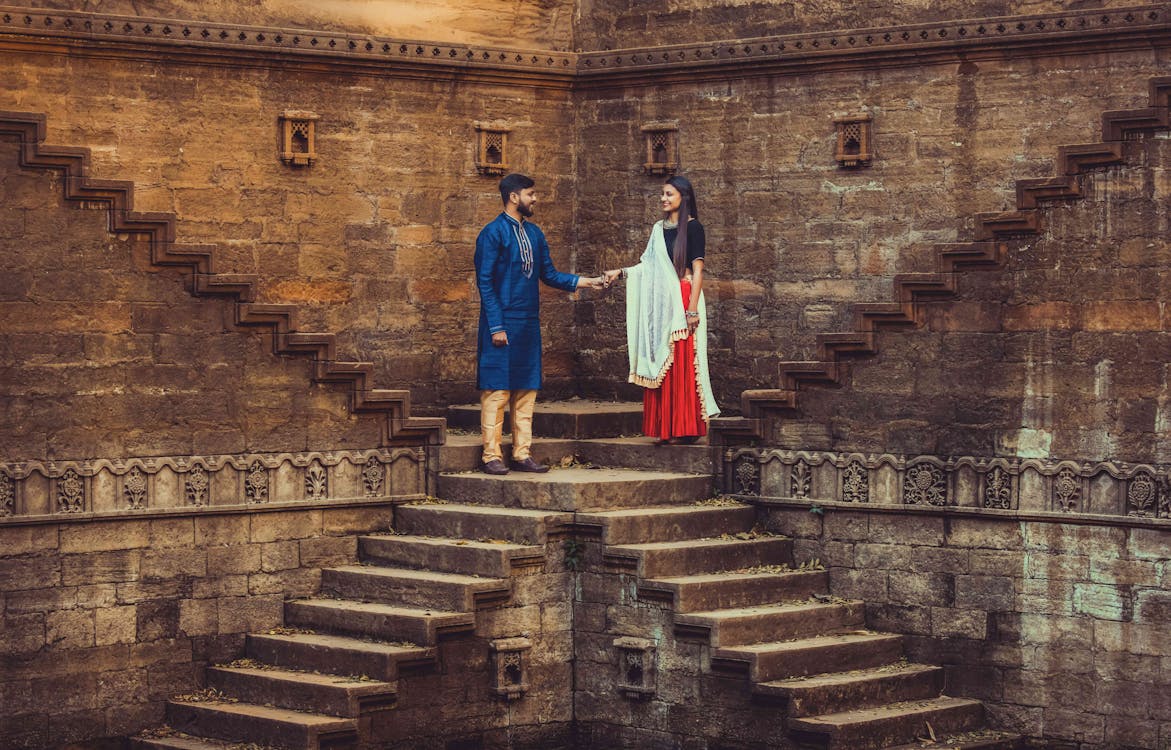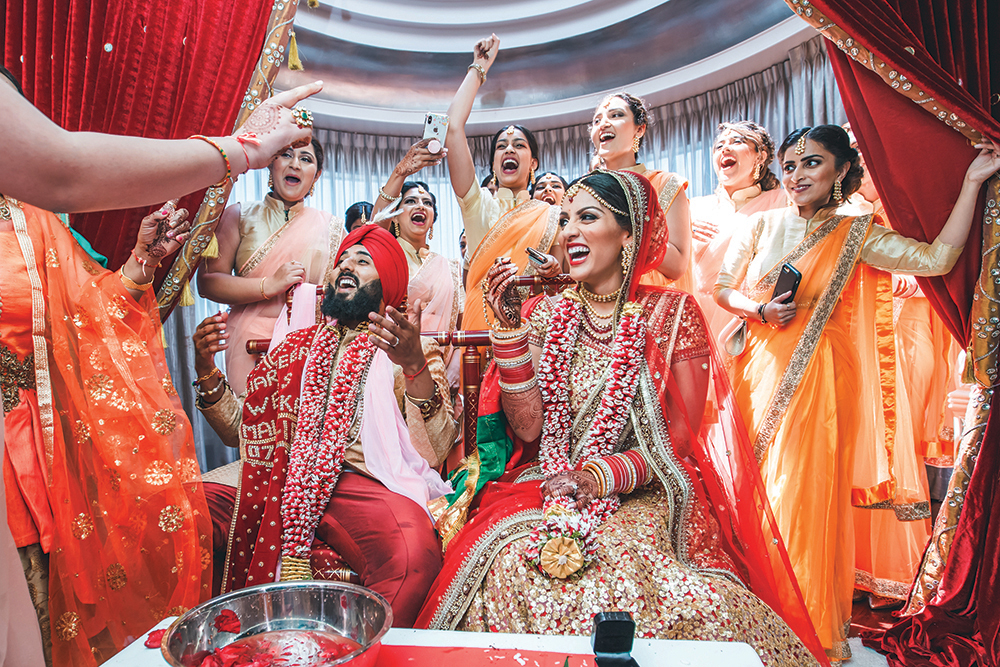Decoding Indian Dating Culture: Traditions and Customs
India, a land of vibrant diversity, has a rich heritage that shapes its social norms, including dating and courtship rituals. As the world becomes increasingly interconnected, understanding cultural nuances can provide valuable insights into the complexities of dating in Indian society. This article explores the historical and evolving traditions of Indian dating culture, shedding light on its complexities and the influence of tradition and modernity.

Arranged Marriages: A Historical Perspective
Traditionally, arranged marriages have been the cornerstone of Indian society. Driven by the belief that marriage is a sacred union between families, these partnerships are often orchestrated by elders and extended family members. Factors such as caste, religious compatibility, social status, and financial stability play a significant role in selecting suitable matches. Arranged marriages still hold sway in certain pockets of India, especially rural areas and traditional communities.
The Role of Family and Elders
In arranged marriages, family and elders hold immense power. They initiate the search for potential partners, meticulously considering the compatibility of families and individuals. Once a suitable match is identified, both families engage in negotiations, discussing dowry, wedding arrangements, and other financial matters.
Dowry System
The dowry system, prevalent in some parts of India, involves the transfer of gifts, cash, or property from the bride’s family to the groom’s. This practice, rooted in socio-economic factors, has often been criticized for its potential to exploit women and their families.
Semi-Arranged Marriages: A Compromise Between Tradition and Choice
In recent years, semi-arranged marriages have gained popularity, offering a blend of tradition and individual choice. While families may still play a role in identifying potential partners, the final decision rests with the couple themselves. This approach allows for a balance between respecting cultural norms and exploring compatibility at a more personal level.
Evolving Role of Families
In semi-arranged marriages, families retain some influence, but their role is primarily advisory. They may suggest potential matches and provide references, but the ultimate choice lies with the couple. This allows for greater flexibility while acknowledging the importance of family ties.
Compatibility and Personal Preferences
Semi-arranged marriages provide an avenue for individuals to consider their own preferences and compatibility when choosing a life partner. Couples have the opportunity to meet, get to know each other, and decide if they wish to pursue a relationship, leading to more informed and mutually agreeable unions.

Modern Dating Practices: A Shift towards Individual Choice
Globalization and Western cultural influence have brought about a noticeable shift towards modern dating practices in India. Urban centers have witnessed a proliferation of dating apps, casual dating, and pre-marital relationships, challenging traditional norms.
Dating Apps and Online Platforms
Online platform Hullo has revolutionized the dating scene in India, providing a convenient and accessible way to connect for singles. These platforms offer a wide range of potential matches, allowing individuals to explore their options and find compatibility beyond their immediate social circle.
Casual Dating and Live-In Relationships
Casual dating and live-in relationships, once considered taboo, are becoming more prevalent in metropolitan areas. Individuals are embracing the freedom to experiment with relationships outside the confines of arranged marriages, prioritizing compatibility and personal growth.
Inter-Caste Marriages: Breaking Barriers
Inter-caste marriages, once strongly discouraged, are gradually gaining acceptance in Indian society. Laws prohibiting such unions and social stigma have been challenged by individuals seeking to break down caste barriers and forge alliances based on mutual understanding and love.
Legal Protections
The Hindu Marriage Act of 1955 and the Special Marriage Act of 1954 provide legal protections for inter-caste marriages, safeguarding couples from discrimination and persecution. These laws have played a significant role in empowering individuals and promoting equality.
Changing Societal Attitudes
While societal attitudes towards inter-caste marriages are still evolving, there has been a noticeable shift in perceptions. Education, social activism, and urban migration have contributed to a growing acceptance of such unions, breaking down centuries-old barriers.

Love Marriages: A Triumph of Individual Choice
Love marriages, driven by romantic love and mutual attraction, have emerged as a powerful force in Indian society. While the concept of love marriages has faced opposition from traditionalists, it has gained acceptance among younger generations who prioritize personal happiness and compatibility.
Affection and Courtship
In love marriages, couples embark on a courtship process fueled by affection and shared values. They engage in dating, spending quality time together, and exploring their compatibility before deciding to commit to a long-term relationship.
Societal Challenges
Despite the growing acceptance of love marriages, societal challenges persist. Some families and communities may disapprove of inter-caste or inter-faith love marriages, leading to conflicts and family estrangement. However, couples who navigate these challenges often find support from friends, peers, and non-profit organizations.
Indian dating culture is a fascinating tapestry woven with centuries of tradition and modern influences. While arranged marriages continue to play a significant role in certain segments of society, semi-arranged and love marriages are gaining traction. The rise of modern dating practices, the increasing acceptance of inter-caste marriages, and the growing prevalence of love marriages reflect a shift towards individual choice and personal fulfillment. Understanding the nuances of Indian dating culture provides valuable insights into the complexities of relationships in this vibrant and diverse land.
Factors Influencing Arranged Marriages
| Factor | Importance |
|---|---|
| Caste | Compatibility and social standing |
| Religious compatibility | Shared beliefs and values |
| Social status | Family reputation and economic stability |
| Financial stability | Economic security and shared goals |
| Family reputation | Honor and respect within the community |
| Physical appearance | Attractiveness and social desirability |
Challenges Faced by Inter-Caste Couples
- Societal disapproval
- Family estrangement
- Legal hurdles (in certain cases)
- Caste-based violence
- Limited support from community and extended family
- Social isolation and alienation
- Financial strain (in some cases)


